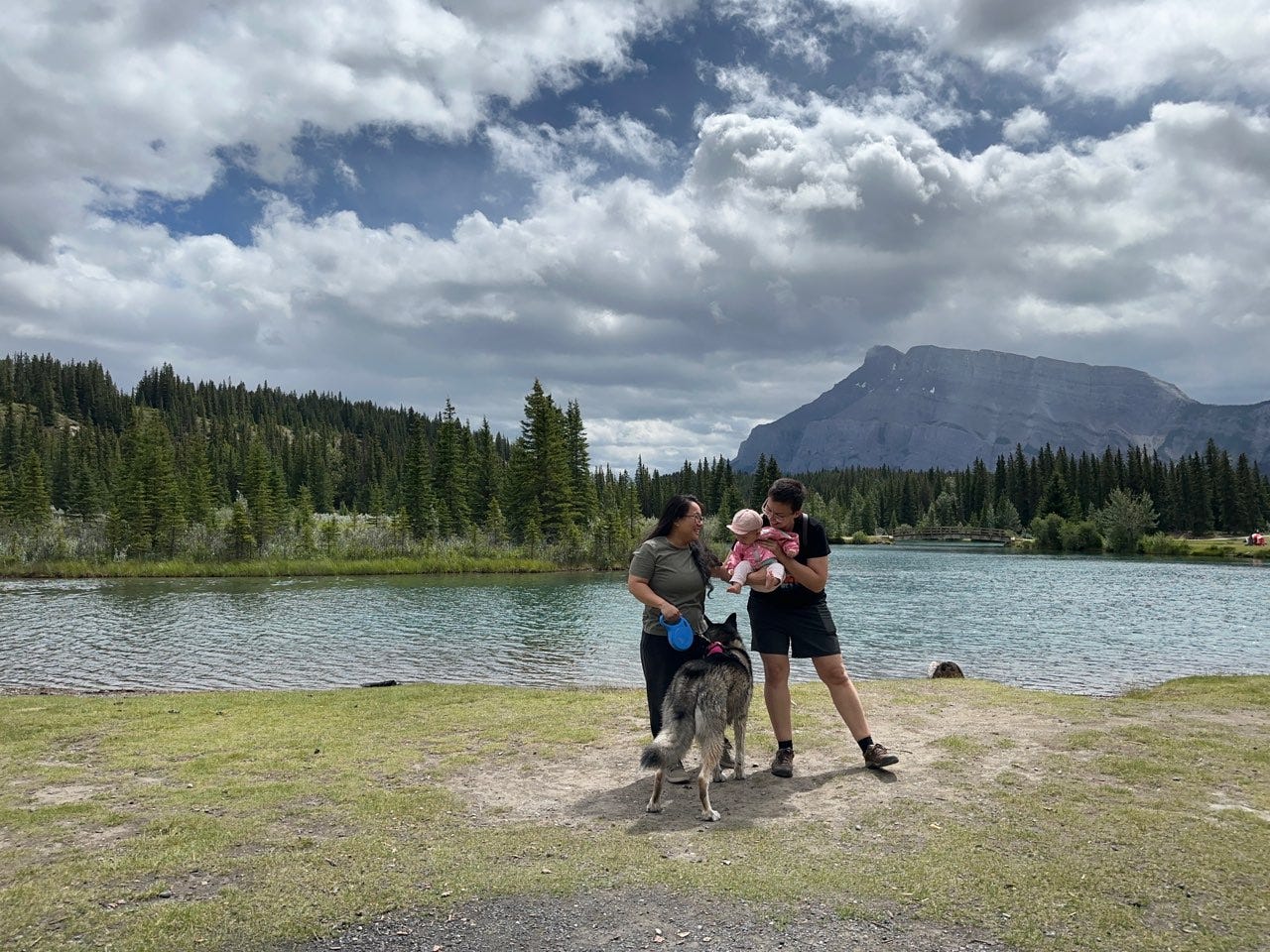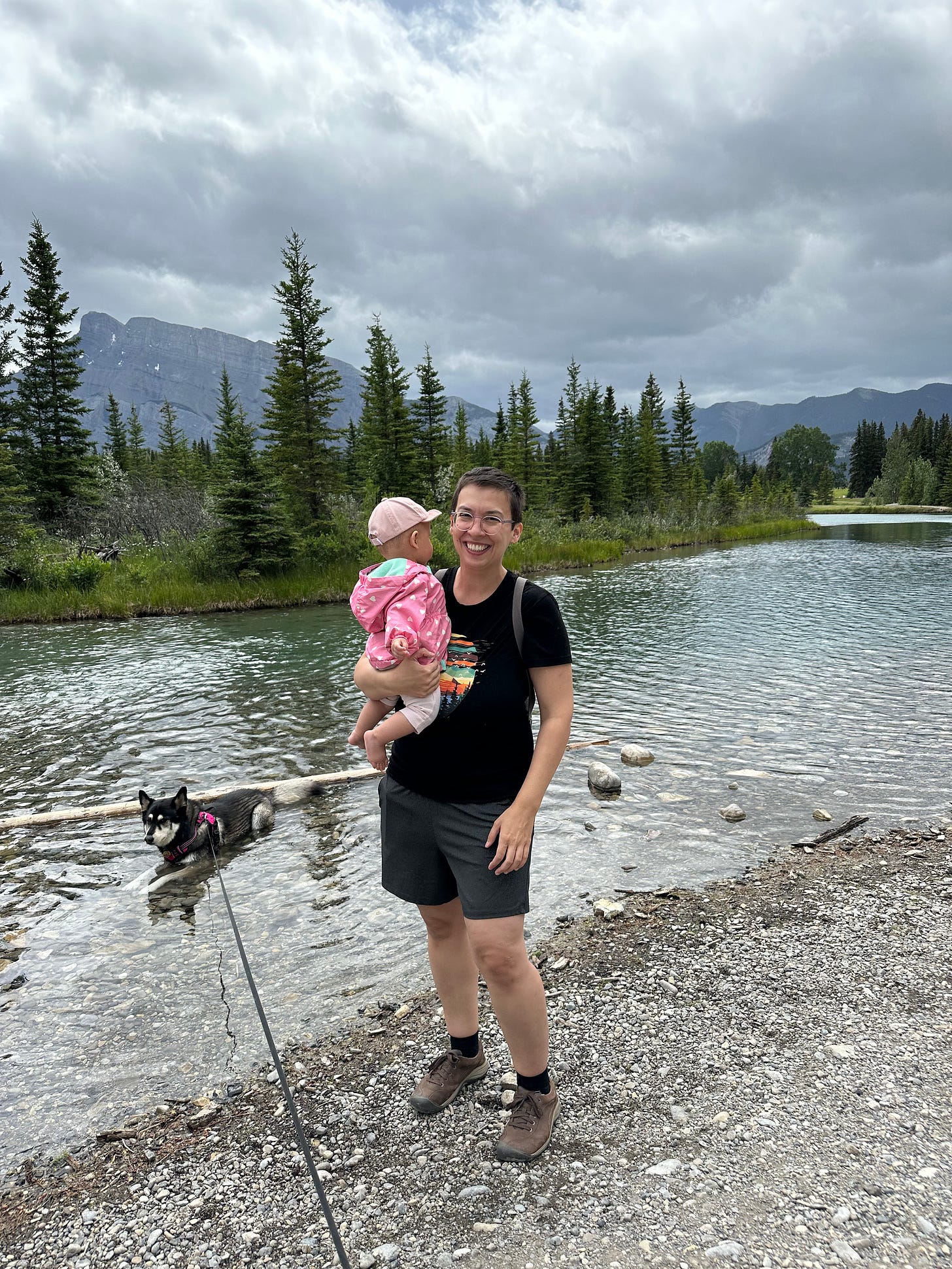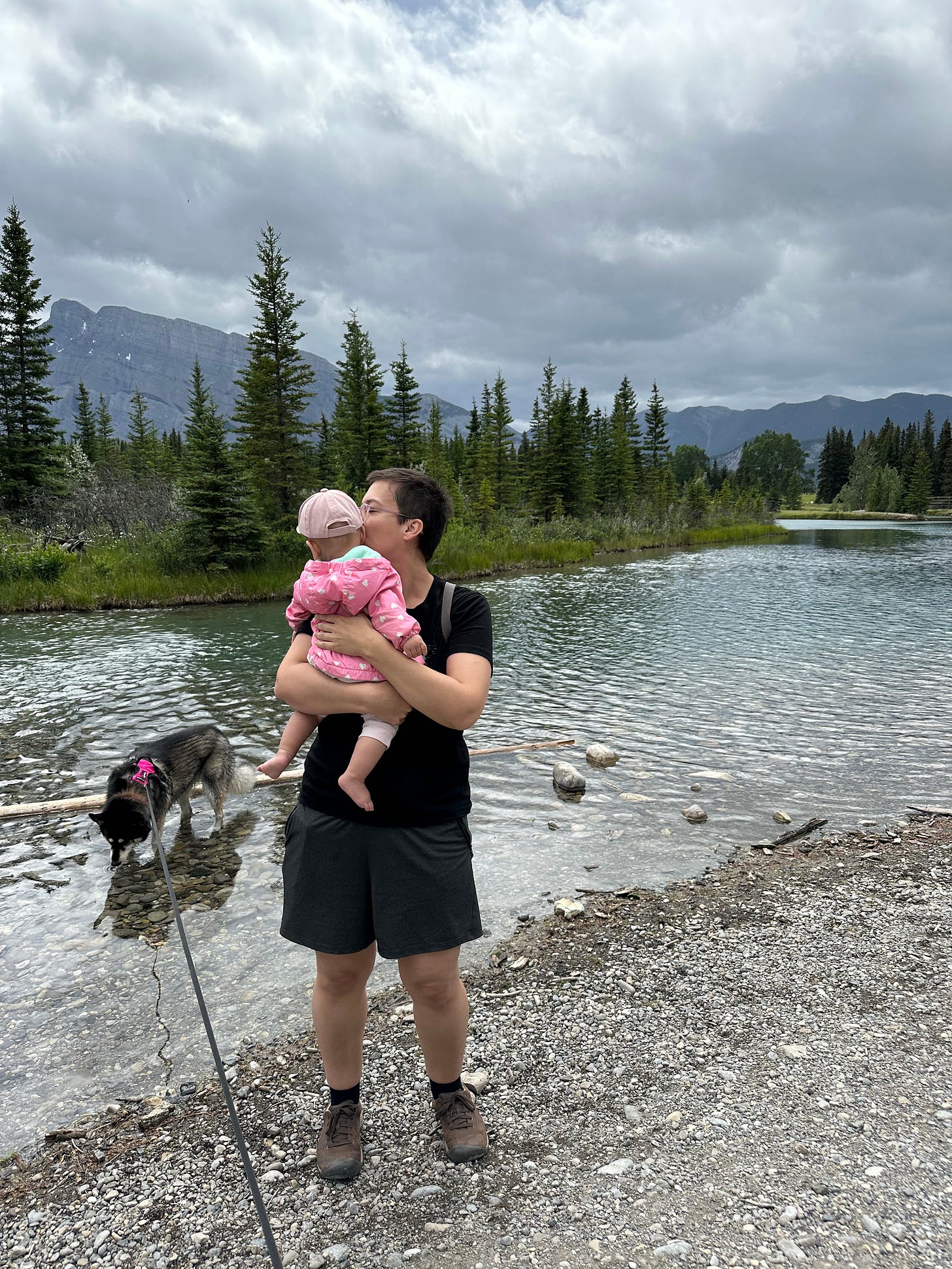Dear Young Lesbians, You Can Live a Happy Gay Life Without "Trans"
Young lesbians today feel a lot of pressure to be champions of the trans cause. While they do carry some points on the oppression hierarchy by being same-sex attracted, they also have the “privilege” of being “cis,” and so they are asked (or rather, demanded) to stand in solidarity with “trans” people. What this generally looks like in practice, however, is young lesbians acquiescing and sometimes even groveling to trans-identified men in their own communities. Somehow, our sexuality is framed as a debt to men who very often wish they were us.
Well, as someone who pretty much lives the quintessential lesbian life (I’m a gold star married to my high school sweetheart who I now have a baby with), let me tell you that you really can just live a gay life and have nothing to do with trans at all.
This might seem obvious to people who aren’t in the current lesbian scene, but it’s not nearly as doable as it sounds for those who are. Lesbian groups, spaces, and bars face immense pressure to be maximally “inclusive.” What this means in practice is to affirm trans-identified men, penis and all, as lesbians as well. Lesbian spaces live and die by their commitment to this cause. Step one toe out of line, perhaps by using the phrase “biological women” to refer to actual women, and face the cancellation mob. And, to be fair, many lesbians themselves take part in and enforce this. But many others don’t necessarily like it and choose to stay silent because of what they have seen happen to the ones who speak up.
Lesbians are kept in line mostly through guilt tripping. As I mentioned above, one way is that they are made to feel like they have “privilege” over “trans” people. Another is that they are told they owe their “rights” to trans people, which is simply not true, least of all of the heterosexual men who are forcing their way into lesbian spaces. The early gay rights movement had nothing to do with “trans.” In fact, the “T” only became a part of the conversation during the third March on Washington for Lesbian, Gay and Bi Equal Rights and Liberation, and only because a contingent of trans activists bullied local organizers into it (TransSisters, Issue 1, pg. 13).
So no, young lesbians, you don’t owe these men anything. You don’t owe them access to your spaces and certainly not to your dating pool. You don’t have to uplift their voices—certainly not at the expense of your own—or champion their grievances (which so often include the demand for access into lesbian bedrooms). You can be a lesbian because you are attracted to women, and that’s enough. You don’t have to be a trans activist, and you certainly don’t have to adopt postmodern queer philosophy and pretend that you don’t understand what sex is. You do know what it is because you know you are a woman attracted to other women, and you don’t have to gaslight yourself into seeing men as women and as potential romantic and sexual interests.
Of course, there is another way that the trans movement impacts lesbians, and that is by encouraging them to transition as well. While I don’t think that lesbians make up the majority of young women today who seek to transition, I do believe that they are disproportionately represented. It makes sense that a gender non-conforming woman, which a lot of lesbians are, would internalize the messaging that being more masculine than average means she is a man. It also makes sense that she might simply feel it would be easier to move through the world perceived as a man than as a masculine woman.
I have a lot of sympathy for this. I can’t imagine what it would be like growing up today and having transition presented as an option for me. It would be tempting, no doubt. I was a major tomboy, and developing feelings for other girls in my early teens would have surely made me wonder if I had been “born in the wrong body.” Thankfully, I was born too early for this narrative, but when trans messaging started picking up steam in my late 20s, I did wonder if I would wake up miserable one day because I should have been a man (and I did wonder if it was the cause of my recurring depression).
So no, I don’t say so confidently that you can live your life without all this stuff because it was a walk in the park for me. It certainly wasn’t awful; by the time I came out, Canada had already legalized gay marriage, and I don’t feel that I have been in any way politically “oppressed.” But it wasn’t always an easy thing to navigate with family and friends, and even today, I am aware that many people in the world hate my relationship and would even be fine taking my baby from me. I know what the rest of the world is like, and I’ve received enough unsavory comments online to know how many people even in the West feel as well. But I focus on the positive and gratefully live the life I know I am lucky to have, thanks to the time and place I live in.
This is what I want for young lesbians today, too. I want them to know how rare it is that we can have the lives we want, but not because I want them focused on their own victimhood and oppression. I want them to use this historical oddity of a time to inspire them to chase exactly the lives they want without feeling like they owe anything to others claiming an oppressed victimhood status, least of all men in dresses.
Of course, we can all have our causes. I’m the last person who should preach against activism and advocacy when I fight against the sterilization of children and the erosion of women’s rights. I’m not trying to preach an “I’ve got mine” philosophy. But I would caution young lesbians to make sure that the people who are making a claim on your time, effort, energy, and the goodwill your community has built up are actually deserving of it. And I would argue that the men using you to force their way into women’s single-sex spaces, sports, and provisions are most assuredly not.
I also wish for gender non-conforming lesbian women to be stronger and more assured in being themselves and to resist the fiction of “gender identity,” which would have them believing that their masculine-leaning preferences somehow make them less of a woman. Again, I want us as a community, while being aware of the challenges that absolutely exist, to be grateful that we do, today, have the opportunity to live openly and authentically. To squander that and escape it by “transitioning” into men is, in my opinion, a great waste of that opportunity. Not to mention that wilful lifelong medicalization is far from a desirable state of being.
You really can just stay a woman, and you can find another woman to love, and you can even build a family if you want to. You really can have a happy gay life, and “trans” doesn’t have to factor into it at all. It may seem difficult to do today, but I’m very happy to report that I know plenty of lesbians younger than me who have managed it as well.
Tune out everything and everyone else who is making claims on you and telling you how to live. Tune out the radical progressives who want to use you as the face of a movement that is hurting women and children, and tune out the voices on the right that would rage at you for finding your happiness in an unconventional way. If you are blessed enough, like I was, to have the opportunity to live the life you want, then take it and don’t look back. You don’t owe anyone an apology, and you don’t owe “solidarity” to people with wildly different (and often opposed) political goals.
You owe only truth to yourself, goodness to your loved ones, and, in my opinion, gratitude to the community that welcomes you. And by “community,” I don’t mean the LGBTQ collective, I mean the people you live and work and spend your days around; the everyday people who really do just want to live and let live, who just want to go about their day and let you go about yours. And no, I’m not naive. As I said above, I am very aware of the real hatred that is out there for us, which is why I am all the more grateful that this hatred is shunned by the mainstream. Most people are actually pretty accepting, if you’ll give them a chance, and if you’ll excuse that they might not always say the right thing in the right way.
These people are the reason you can live life on your terms—it’s not thanks to the queer and trans activists who keep pushing and pushing the more radical ideas which are starting to erode the goodwill we’ve built up. If you leave the victimhood mentality behind and integrate yourself into the communities around you, rather than the “queer” community, you will come to see that. You will come to see that the trans and queer attack on family, community, and the very reality of sex itself is an attack on your life and the life you want to live. You owe nothing to a movement like that.




If I never hear or read the expression "queer women" again, it will be too soon.